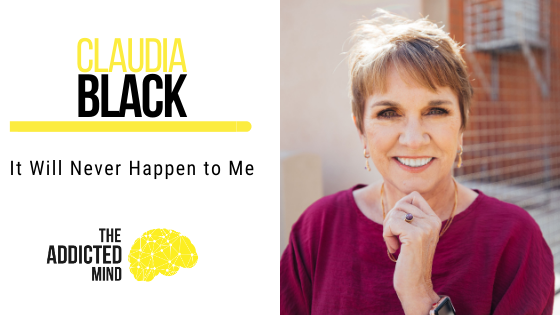Children of an addictive home internalize a lot of toxic shame where they lose the ability to believe in their own worth and value. For some people, it has never been instilled in them, to begin with.
But there is an emotional connection between the addict and their family. Regardless of how old you are – if you were raised with addiction, you deserve to be acknowledged.
The addiction in the family would be ignored by everybody else if they could ignore it. And so, it’s important that children of addiction are acknowledged and validated constantly.
Different drugs may be used, we may understand more about it or we may come up with more sophisticated treatment, but the experience for the person really doesn’t change – and being validated is a huge part in the healing process.
The issues are ageless, but the experience in this kind of home is the same experience.
A Systematic Approach to Treatment
Dr. Claudia Black, a world-renowned expert on addiction and codependency, and author of It Will Never Happen to Me: Growing Up with Addiction as Youngsters, Adolescents, and Adults, talks about the importance of a systematic approach to addiction treatment where the addict isn’t the only one that needs to be treated, but also the entire family. Otherwise, the problem will repeat itself from generation to generation.
Recognizing the Different Family Roles
- The responsible child knows how to take charge and lead.
- The placating child is warm and empathetic.
- The adjusting child is highly flexible.
- The really angry kid walks through life saying there’s something wrong in their life, but they don’t get seen as a child who’s in a troubled family where the family is addressed.
- The looking good kids present a false image that they’re doing just fine but they often end up imploding in relationships and become very depressed later in life. While they’re so busy surviving, you don’t tend to see them and they’re not being acted out.
Depending on the role, they tend to have certain beliefs that go along with each of the roles and they adhere to them rigidly – and that’s the problem. Recovery in an adult child is about recognizing what you didn’t learn, as well as challenging the beliefs along the way.
Once these roles have been recognized, there are certain steps that can be taken as part of the recovery process:
1. Be compassionate with yourself and try not to be critical of yourself.
2. Connect the past to the present day. This is a very detailed process where you take a specific issue and attach it to all these different areas of your life.
- How is that impacting you today and your relationships?
- How does it impact how you feel about yourself?
- Is there a belief associated to this that’s getting in the way?
3. Learn the skill and practice the skill. A lot of people get in trouble as they try to do the skill work without looking at the emotional work or looking at the belief that’s associated.
If you want to learn more about growing up with addiction in the family, check out Episode 117: It Will Never Happen to Me with Claudia Black.

